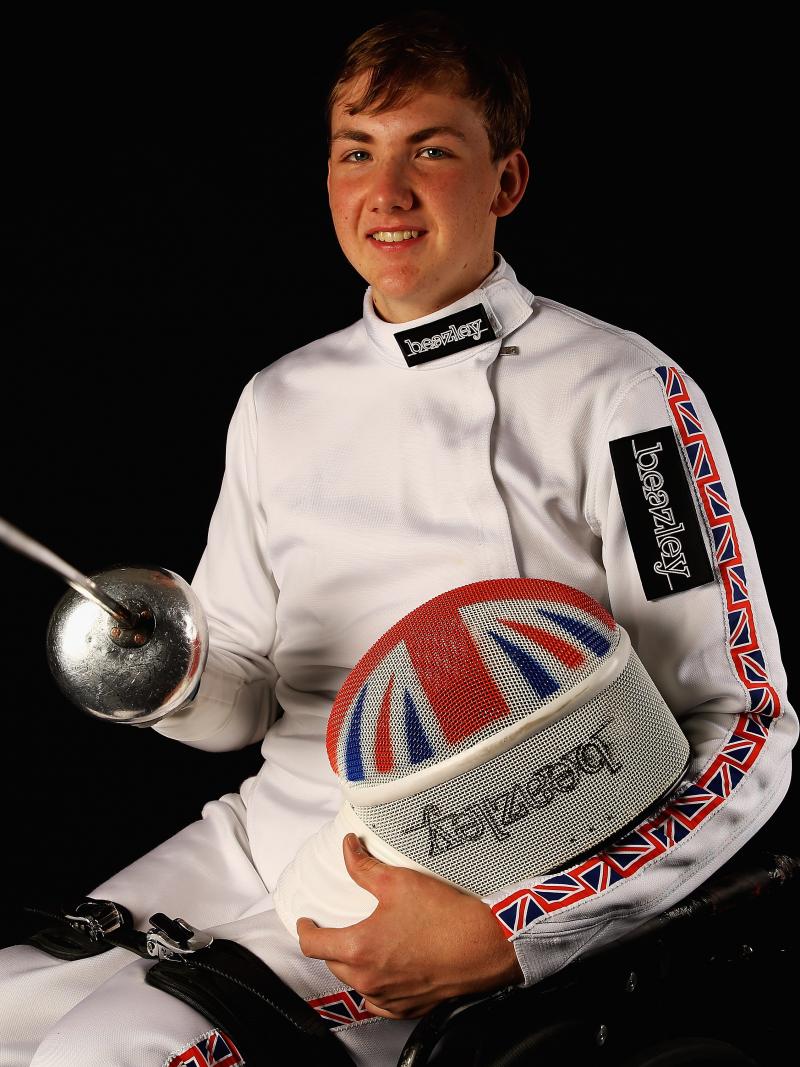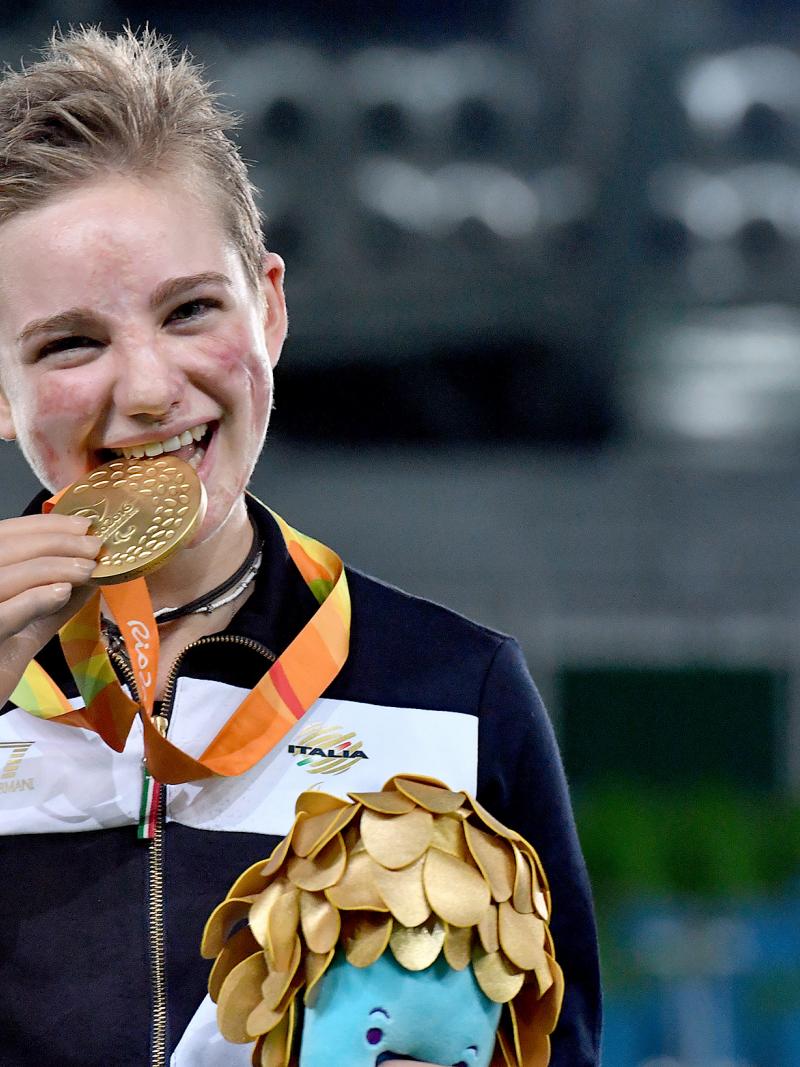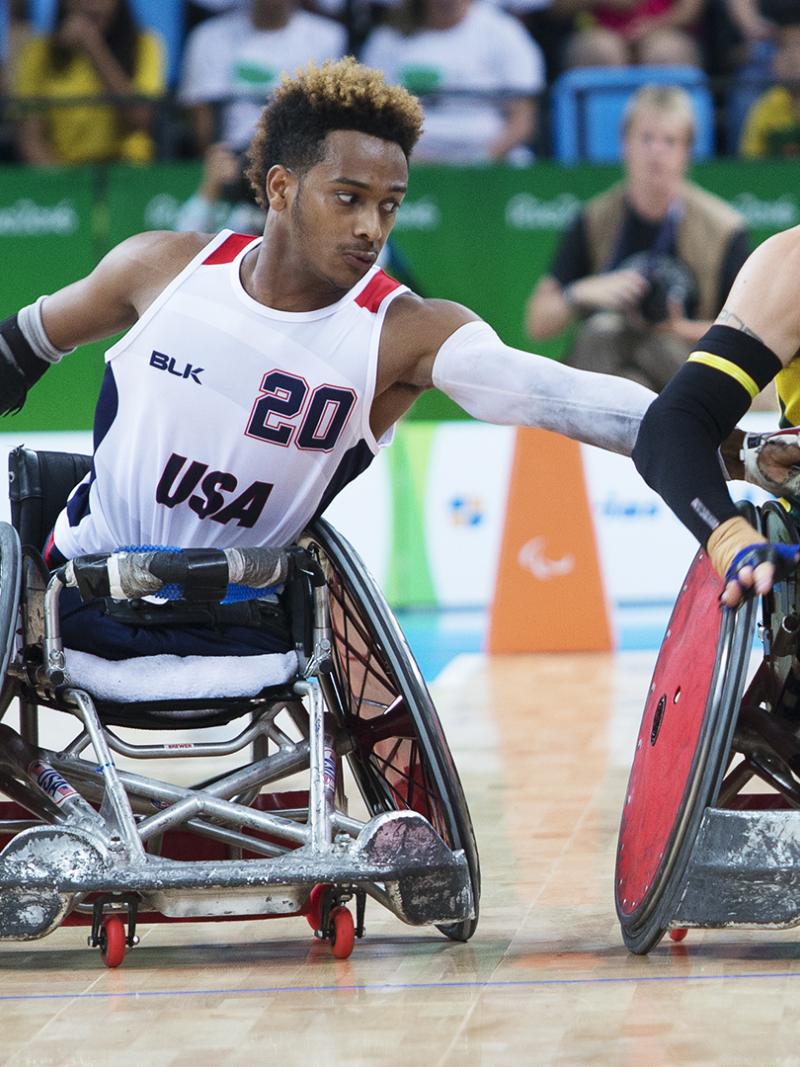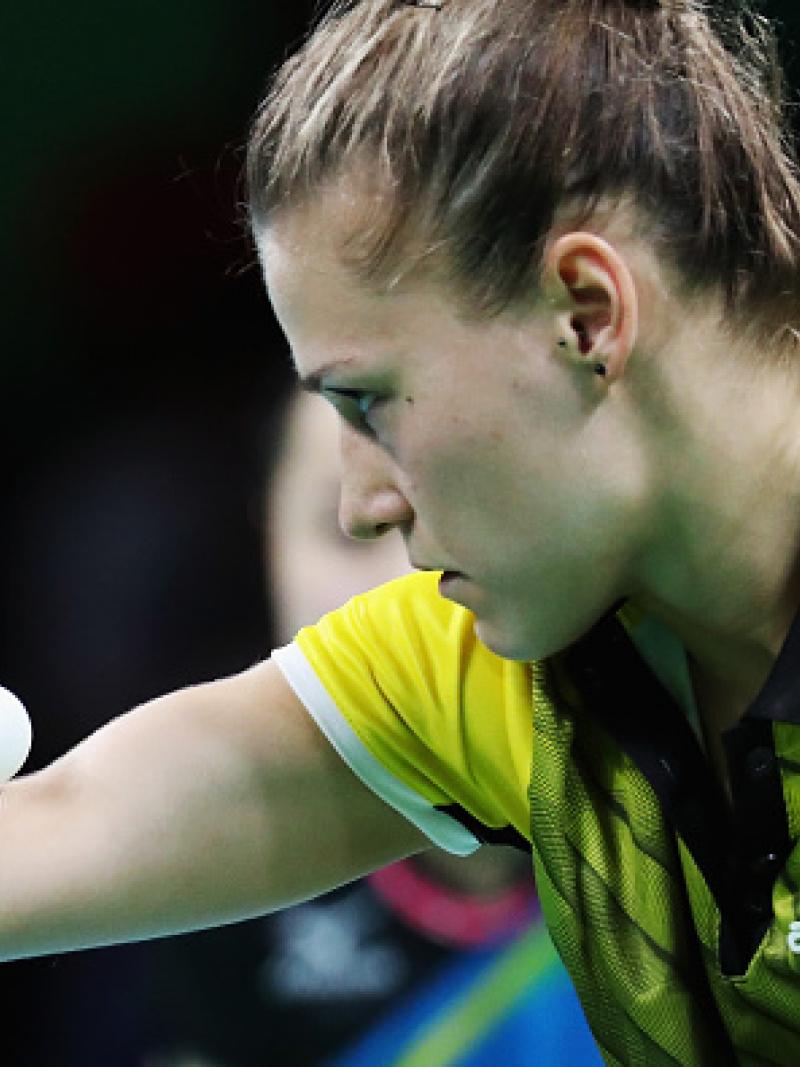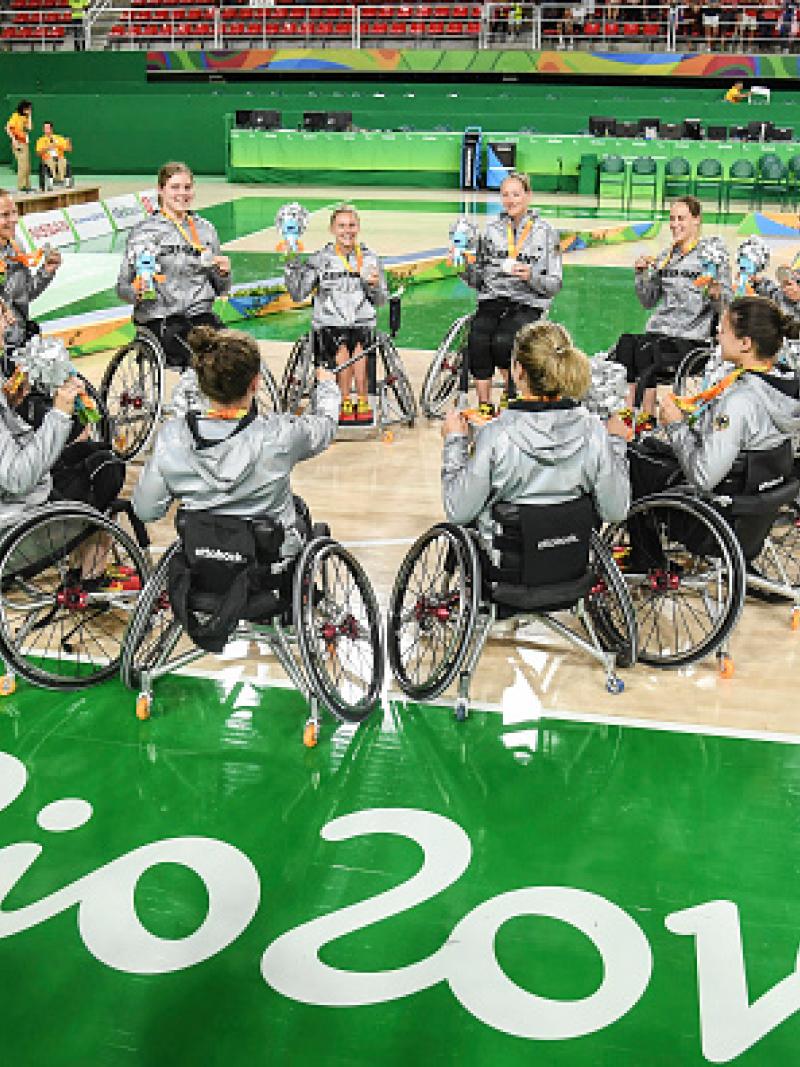Wheelchair fencing: Five things we learned in 2016
From the emergence of new stars to the resurgence of former champions - what 2016 taught us about wheelchair fencing. 31 Dec 2016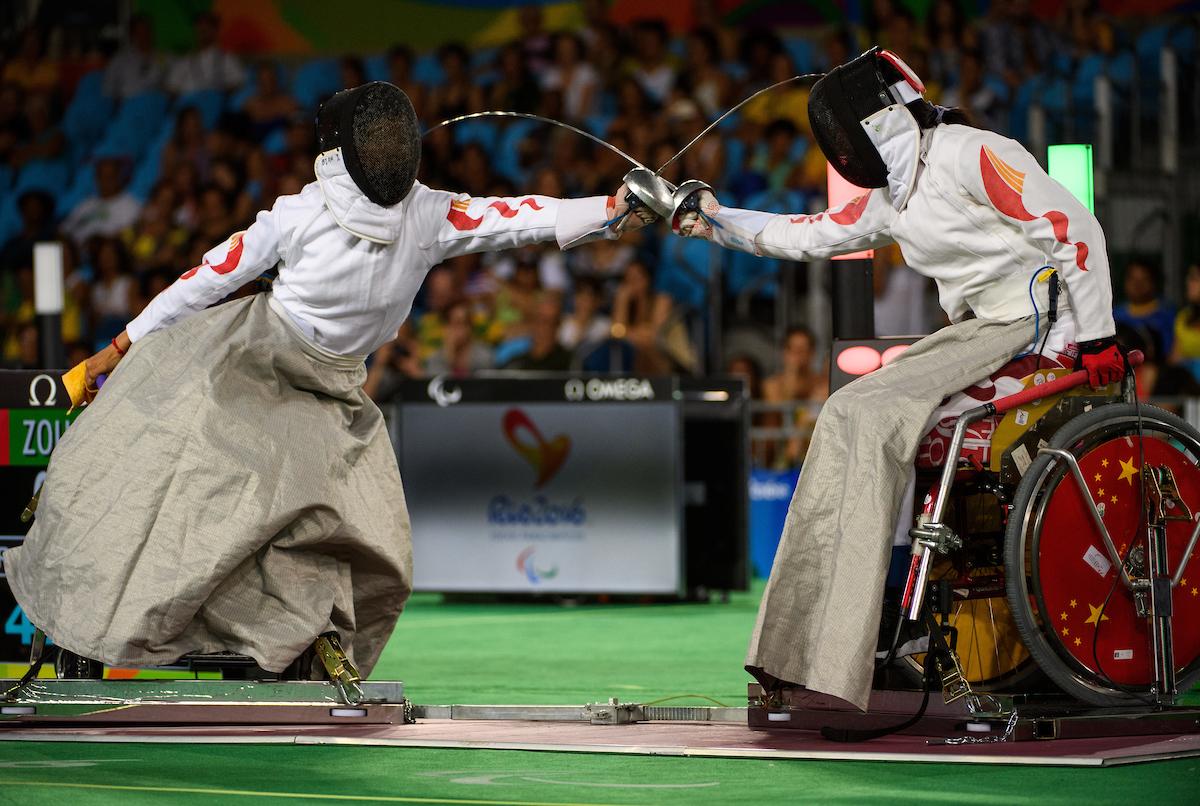
Xufeng Zou CHN (right handed) wins the Gold Medal against Jing Bian CHN in the Women's Individual Épée - Category A Gold Medal Bout Wheelchair Fencing in the Carioca Arena 3
“Being an athlete, winning and losing is a normal phenomenon..."
1. Vio – wheelchair fencing’s golden girl
It was an incredible year for Italy’s Bebe Vio, with the 19-year-old Italian making headlines on and off the piste. After going the whole of 2015 unbeaten, Vio extended her remarkable run of victories, winning foil category B gold at the first three major tournaments of the year.
Vio was finally beaten at the World Cup in Warsaw, Poland, in July, with a narrow loss to Russia’s Viktoria Boykova in the final. There was a rapid return to winning ways however, with Vio taking gold on her Paralympic debut at Rio 2016.
Vio has not left the spotlight since. Gold in Rio was followed by a meeting with the Pope, guest appearance at a Dior fashion show and even a State Dinner at the White House hosted by US President Barak Obama.
Concerns that the attention would distract Vio from fencing were squashed when she won the final World Cup of the season in Pisa, Italy, in November. Vio said there is no risk of complacency in 2017: “Absolutely not,” she said. “The secret is to put yourself on the line, to aim always higher and never give up.”
2. Chinese fencers still dominate
China underlined their status as the world’s best squad in 2016, not least at the Paralympic Games.
Their talent is so deep that even individual foil category B gold medallist Yanke Feng was not selected for the team foil competition in Rio.
The nation topped the medals table at Rio 2016 by some distance, winning 17 of the 27 available medals, nine of them gold.
3. Robert Citerne’s career far from finished
At 55 years old, France’s Robert Citerne was the oldest fencer at Rio 2016, but his energetic performances showed he is not ready to retire.
Citerne was a key member of the men’s epee team that won gold in Rio, 28 years after his first Paralympic medal at Seoul 1988. Rio 2016 was Citerne’s eighth Paralympic Games.
“It might seem impossible because I’m 55 years old now,” Citerne said after competing in Rio. “But I feel very young in my head and I know I can go as far as I want.
“When I am on the fencing piste I feel like a young boy. Now I'm looking at the next four years. The gold in Tokyo [2020] is very much possible.”
4. Yu Chui Yee still has the will to win
Despite already possessing seven Paralympic gold medals, Hong Kong’s Yu Chui Yee is still hungry for success. Having not topped the podium at a major event in 2015, Yu was intent winning this year. She came back just at the right time, winning gold at the World Cup in Warsaw, Poland, in July – the final event before the Paralympic Games.
Yu took this form to Rio 2016, where she again impressed. Silver in both the women’s foil category A individual and women’s epee team events saw her set a record for the most Paralympic medals of any female fencer. Despite this achievement, Yu admitted she was disappointed to miss gold. She is now focused on a title-filled 2017.
“Being an athlete, winning and losing is a normal phenomenon, so what I have to do now is not have regrets,” Yu said.
“I go back to the training hall and next year I am looking forward to competing against great fencers like Beatrice Vo [in the mixed classification team competitions] and Zszuzsanna Krajnyak.”
5. Great Britain’s fencers are great again
Piers Gilliver’s silver in the men’s epee category A competition at Rio 2016 was the first Paralympic medal for a British wheelchair fencer since Barcelona 1992, where the men’s sabre team took bronze. The future now looks bright for British wheelchair fencing.
Twenty-two-year-old men’s category A world No. 1 Gilliver was joined by 19-year-old Dimitri Coutya, who won silver in the category B foil event at the European Championships in Casale Monferrato, Italy, in May. Gemma Collis, 24, is also the world No. 8 in the women’s epee category A rankings.
With this young team of talented competitors, Great Britain might not need to wait another 24 years to stand on the Paralympic podium.

 Facebook
Facebook
 Instagram
Instagram
 Twitter
Twitter
 Youtube
Youtube
 TikTok
TikTok
 Newsletter Subscribe
Newsletter Subscribe

